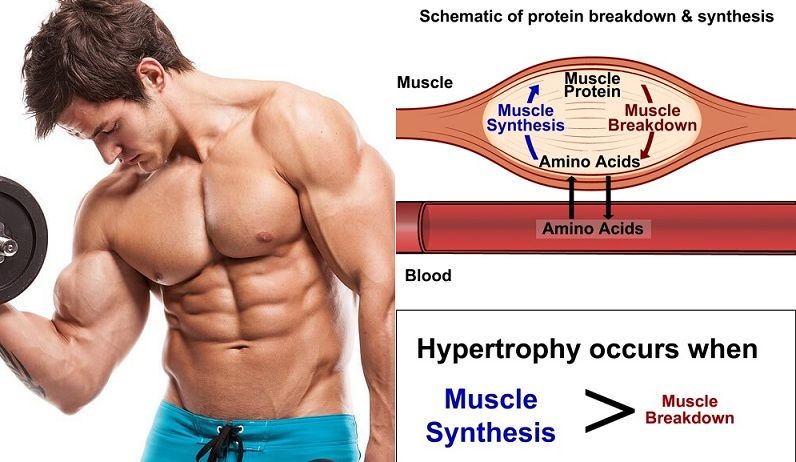Protein is often touted as the building block for muscles, and for good reason. When it comes to muscle building and recovery, protein plays a crucial role in repairing and rebuilding muscle fibers that have been broken down during intense exercise. In this article, we will explore the importance of protein in muscle building and recovery, as well as how you can optimize your protein intake to maximize your gains.
Why Protein is Important for Muscle Building
Protein is made up of amino acids, which are the building blocks of muscle tissue. When you engage in resistance training or strenuous exercise, you create micro-tears in your muscle fibers. In order for muscles to repair and grow stronger, they need an adequate supply of amino acids, which are provided by protein.
In addition to repairing and building muscle tissue, protein also plays a role in enzyme production, hormone regulation, and immune function. Without enough protein in your diet, your muscles may not recover as quickly or effectively, hindering your progress in the gym.
How Much Protein Do You Need?
The amount of protein you need to support muscle building and recovery depends on a variety of factors, including your age, sex, weight, activity level, and fitness goals. In general, most experts recommend consuming between 1.2-2.2 grams of protein per kilogram of body weight per day for optimal muscle growth.
If you are an athlete or bodybuilder who engages in intense exercise regularly, you may need to consume even more protein to support muscle recovery and growth. It’s also important to spread your protein intake throughout the day, rather than consuming it all at once, to ensure your muscles have a steady supply of amino acids for repair and growth.
The Best Sources of Protein
Not all protein sources are created equal. Some sources of protein, such as lean meats, poultry, fish, eggs, and dairy products, are considered high-quality sources of protein because they contain all nine essential amino acids that the body needs to build and repair muscle tissue.
Plant-based sources of protein, such as legumes, nuts, seeds, and whole grains, can also be good sources of protein, but they may lack one or more of the essential amino acids. It’s important for vegetarians and vegans to combine different plant-based protein sources to ensure they are getting all of the essential amino acids they need for muscle building and recovery.
Optimizing Your Protein Intake
In addition to consuming an adequate amount of protein, it’s also important to consider the timing of your protein intake. Consuming protein before and after a workout can help support muscle recovery and growth, as well as prevent muscle breakdown during exercise.
Incorporating protein-rich snacks and meals into your diet, such as protein shakes, Greek yogurt, cottage cheese, and lean meats, can help ensure that you are getting enough protein throughout the day. It’s also important to stay hydrated and consume a balanced diet that includes a variety of nutrient-dense foods to support overall muscle health and recovery.
Conclusion
Protein is essential for muscle building and recovery. By consuming an adequate amount of protein from high-quality sources and timing your protein intake strategically, you can support muscle growth, repair, and recovery, leading to better performance in the gym and faster progress towards your fitness goals. Make protein a priority in your diet to maximize your gains and achieve your full potential as an athlete or fitness enthusiast.
